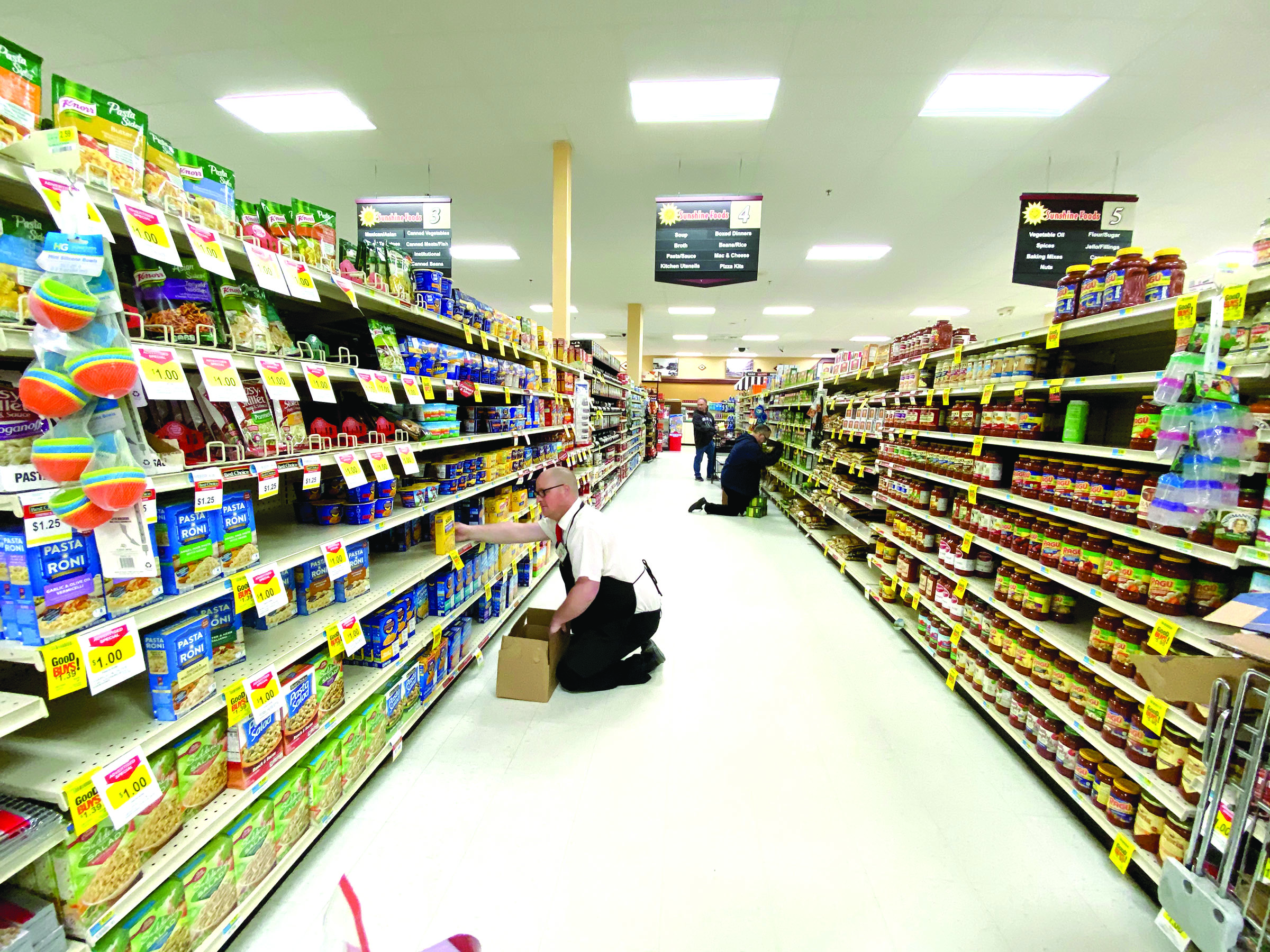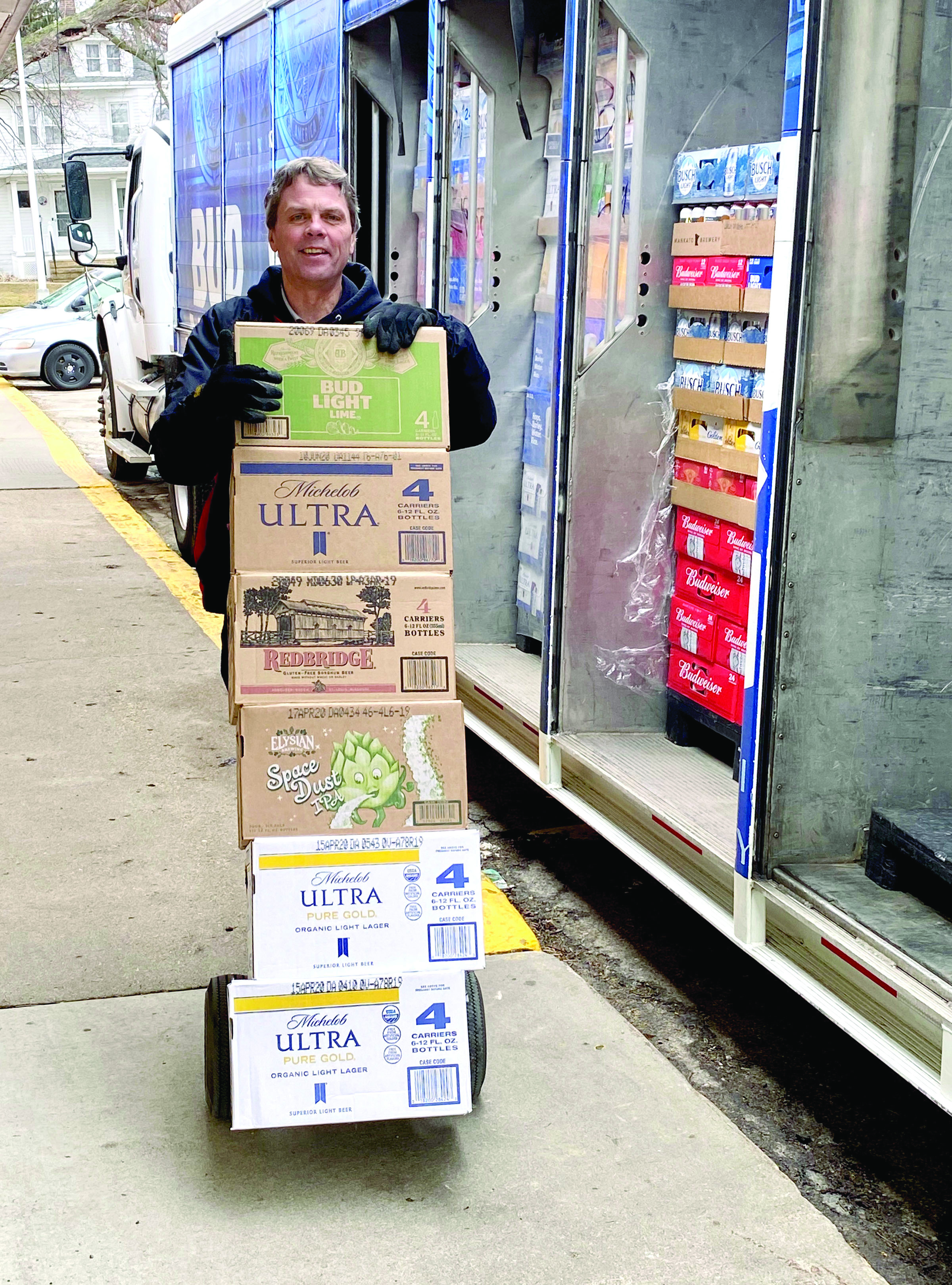 ,
, 
While most local businesses are losing revenue due to coronavirus measures, Sunshine Foods and Blue Mound Liquor are struggling to keep up with demand.
“It’s been busier than ever,” said liquor store cashier Christi Wilson. “I haven’t seen a madness like this since the holidays. People are just afraid the liquor store might close.”
Liquor store manager Kenny Rolling compared sales receipts from the second week of March to the week following Minnesota’s first orders to shelter in place.
“The number of customers is up 19 percent,” he said. “But sales are up 59 percent.”
This, he said, suggests people are feeling inclined to stock up. Beer sales saw a steady increase, but there was a sharper uptick in liquor sales
At the same time, he said liquor store employees are spending more time on the phone answering calls about the coronavirus effect on the liquor store.
“People thought we were going to close,” Rolling said.
Liquor stores are deemed essential to remain open for business because alcohol withdrawal for some people could lead to hospitalization.
At a time when hospitals are gearing up for coronavirus cases, the idea is to keep as many patients away from emergency rooms as possible.
Incidentally, smoke shops like Herb ’N Legend in Luverne remain open for similar reasons.
Store owner Terry Gray said he’s taking health precautions by limiting the number of customers in the store, offering curbside pickup and using medical grade cleaners to prevent spread of germs.
“We are unique in that the majority of our products are behind counters and in cases so people can’t touch things besides cases,” Gray said. “Those are easy to sterilize after each customer.”
While many people have continued working, either from home or from protected work areas, grocery stores are among the most visible places of business still operating at full capacity.
At Sunshine Foods in Luverne, store manager Jason Oye said he and store workers are scrambling to stay ahead of product demand.
“I wish people understood that we’re not closing,” Oye said while stocking shelves March 26. “Grocery supply chains are open; you don’t need to stock up.”
In particular, Sunshine — and many other businesses across the Midwest — couldn’t stay ahead of toilet paper demand. Many shoppers arrived in those aisles to find empty shelves that would be restocked the following day only to be depleted again by hoarding shoppers.
Similar shortages later happened with bread and potatoes, as those items became the focus of irrational concern.
With Minnesota schools dismissed through May, Oye has managed to keep enough employees on hand to keep up with stocking shelves and carrying out groceries.
Background
Area businesses have been affected by the coronavirus since March 13 when Gov. Tim Walz first declared a peacetime emergency due to the pandemic threat.
On March 15 he ordered the temporary closure of public schools. On March 16 he ordered the closure of bars, restaurants and other places of public accommodation.
On March 24 state government and public health directives closed non-essential businesses and limited residents from participating in non-essential activities to mitigate the community spread of coronavirus in Minnesota and nationwide.
On Friday, March 27, all Minnesotans were ordered to stay at home or in their place of residence except to engage in the activities and critical sector work through April 10.
As of Monday, March 30, there were 576 lab-confirmed cases in Minnesota, up 73 from Sunday to Monday, and so far 10 reported deaths.
Worldwide there are 737,000 cases and 35,000 deaths as of Monday afternoon, and in the United States 143,000 cases and over 2,500 deaths (776 in New York).


